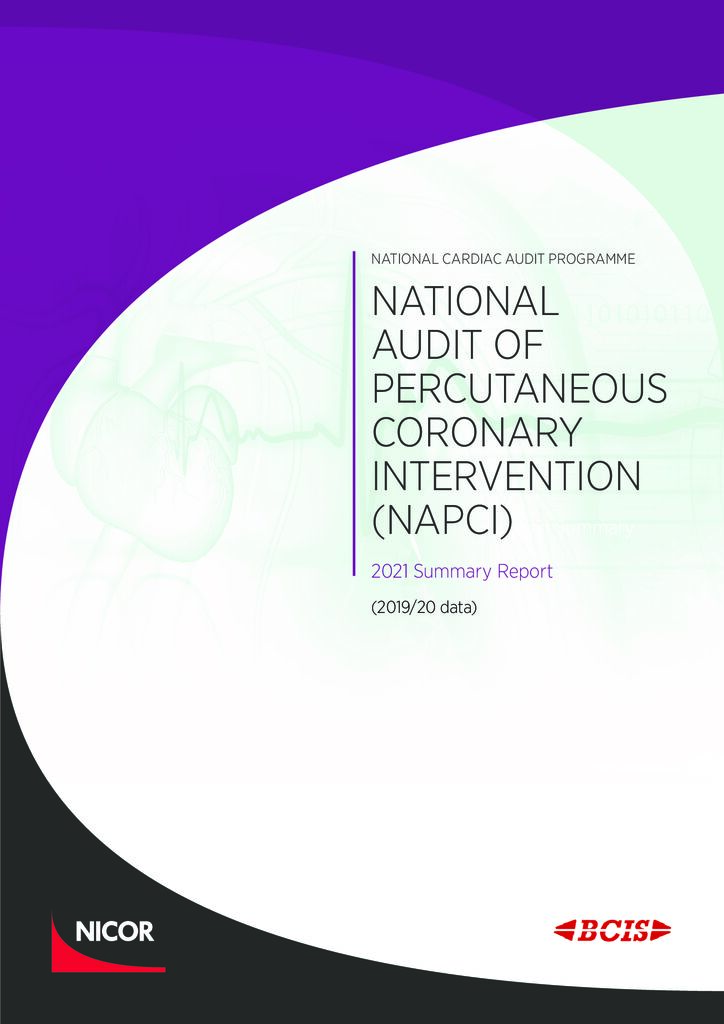National Audit of Percutaneous Coronary Intervention: 2021 summary report
The National Audit of Percutaneous Coronary Intervention (NAPCI), which is part of the National Cardiac Audit Programme, has published its latest summary report. Based on data from April 2019 to March 2020, the report focuses on specific metrics that address the potential for quality improvement.
Overall there was a slight reduction (less than 1%) in the total PCI procedures compared to 2018/19 – to 100,112 (a 3% drop over the last two years). However, there was a continued trend in reducing the number of lower volume centres (the percentage of NHS PCI centres performing less than 400 cases in a year fell again from 16% to 15% in this year.
Other key findings include:
- The proportion of patients with diabetes increased to 24.3%, from 20.2% in 2012
- 5% of PCI procedures were performed using radial access (associated with fewer complications than femoral access and lower mortality in high risk patients), and
- 1% of ST-segment Elevation Myocardial Infarction (STEMI) patients were treated within 60 minutes of arrival at a PCI centre.
It was also found that 64% of PCI cases for stable symptoms were performed as day cases, but with enormous variation from provider to provider – so there is considerable scope to reduce unnecessary overnight stays through local improvement. This is one of many recommendations made in the report.
Read the full report: You can read the report by clicking on the link below.
Stay-up-to-date: For notifications of future reports from HQIP, sign up to our mailing list.


